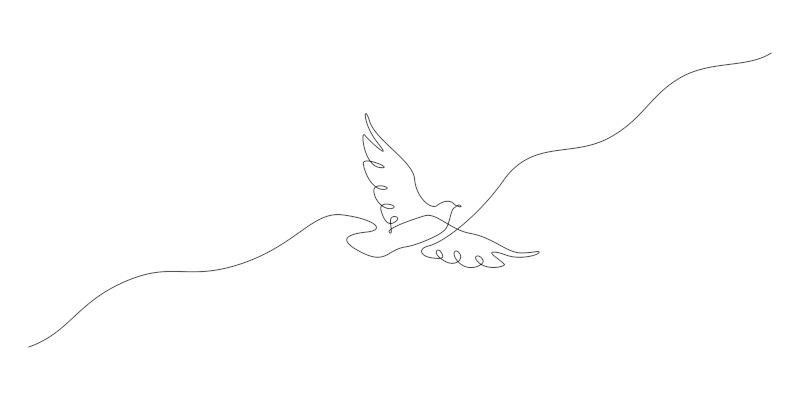Why is it so difficult to speak of peace?
November 4, 2023
War always brings problems. Even the so-called victors experience these. The world is made poorer in that the next war seems to be much closer and easier to wage. True peace on the other hand, brings only benefits.
In case readers are not entirely sick of my personal anecdotes, here are a couple about peace, an elusive concept as war rages in Palestine. The first goes back to the days when the recently deceased Bill Hayden was Foreign Minister and the second concerns the efforts of a New South Wales town to build international reconciliation.
Preparing for the United Nations International Year of Peace (1986) Mr Hayden made some important appointments. These included an Ambassador for Disarmament and an IYP Secretariat. The importance of the Ambassadorship was that it recognised that armaments are a source of tension and a cause of war. They do not and have never provided genuine peace.
The Cold War was still raging in the mid 1980s and anyone who spoke the word peace in the west was likely to be labelled a communist stooge. In a conversation I had with an important IYP bureaucrat, the question arose did right wing condemnation of domestic peace efforts make her task more difficult?
She was ready with a perfect answer to this difficulty. She would work, she said, with the devil incarnate for peace. In other words, if anyone came to negotiations with an open mind and heart genuinely interested in peace, she would welcome them. What a contrast this makes with the international power brokers today mostly male who want peace only as they perceive it and only on their terms.
The country town in question is Cowra, New South Wales. In 1992, I played a small role in acquiring Australias World Peace Bell for the town and the inaugural ringing in 1992. The World Peace Bell movement began in Japan and a countrys bell is usually located in the national capital. The ideas behind the bell are that coins and medals should be included in the casting of the bell, that the sound of a bell does not stop at borders and that the peal would call people to reflect on the importance of peace.
Cowra was considered a suitable site for the bell because the town had a fine record of working towards international reconciliation. Many Australians would realise - largely because of the breakout of 1944 - that prisoners of war and enemy aliens were interned there. Fewer perhaps appreciate that after the war, some townspeople, including members of the local RSL, tended the graves of deceased internees. The Japanese war graves commission was so impressed by this regard that they relocated the remains of their people from across South East Asia.
Friendship with Japan has brought cultural and economic benefits to Cowra. The Japanese garden there has a tranquil air which other towns have sought to emulate. Japanese language has been a strong subject in the schools and many students have enjoyed exchanges.
The people of Cowra realised the potential for broader peaceful contacts and began an annual week of international friendship. Each year, there are exchanges with a host country, whose diplomatic representatives stage exhibitions and concerts. In schools, students learn the anthems of the various guest nations.
Having the honour to respond to the Governors speech when he was inaugurating the peace bell, I mentioned how important such symbols are. They facilitate a meeting of minds and perspectives which might otherwise think that they have little in common. The Governor was a military man and pursued peace in his own way. My approach was decidedly different but with the peace bell we could be on common ground.
Contemplation of the bell and what it symbolises reminds us that peace is not a destination but a way of travelling. In the current catastrophe in the Middle East those who say they want peace need to make a new commitment to this way of travelling. Peace will not be attained through bloodshed or through force of arms.

